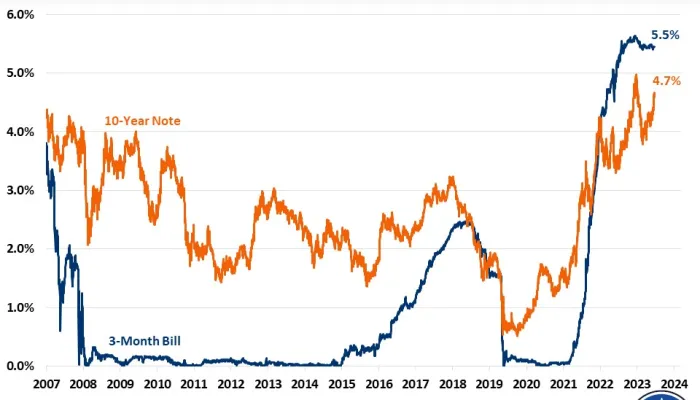IMF to the United States: Adopt a Credible Fiscal Plan for the Medium-Run
The International Monetary Fund (IMF) released its World Economic Outlook update today, on the eve of two big moments for U.S. fiscal policy - the President's State of the Union address tonight (which we hope will contain the President's solutions for fixing our fiscal problems) and the Congressional Budget Office's (CBO) new budget projections tomorrow (which will show us exactly how big our fiscal challenges are).
As we listen to the President's speech tonight and the Republican response, it would be good to keep in mind the strong fiscal advice handed out by the IMF: to avoid hurting our recovery as it takes shape and to prevent a crisis, the United States needs to come up with a credible plan soon to reduce U.S. budget deficits and debt over the next decade. Here's what the IMF says (emphasis ours):
"[A downside risk to the global economic and financial outlook] stems from insufficient progress in developing medium-term fiscal consolidation plans in large advanced economies. The recently implemented stimulus measures in the United States ... make it more challenging to ensure medium-term fiscal sustainability. Therefore, it has become even more important to formulate more credible plans to bring debt down over the medium term ... Although some targeted measures in the United States are justifiable at this juncture given the still weak labor and housing markets, the recently implemented stimulus is expected to delivery only a relatively small growth dividend (given its size) at a considerable fiscal cost. The U.S. fiscal deficit is now projected at 10 3/4 percent in 2011 (more than double that in the euro area), and gross government debt is projected to exceed 110 percent of GDP in 2016. The absence of a credible, medium-term fiscal strategy would eventually drive up U.S. interest rates, which could prove disruptive for global financial markets and for the world economy. It is thus even more critical that policies be put in place to bring debt down over the medium term. Such measures could include entitlement reforms, caps on discretionary spending, reforms of the tax system to boost fiscal revenue, and the establishment or strengthening of fiscal institutions."
The IMF is also concerned about other economic and financial risks in the U.S., the Eurozone and Japan, which could hurt the global economic recovery just as it is starting to pick up. Although the Fund now projects that overall global economic growth will pick up to 4.4 percent this year (an upward revision from October), they warn:
"Downside risks arise from the possibility of tensions in the euro area periphery spreading to the core of Europe; the lack of progress in formulating medium-term fiscal consolidation plans in major advanced economies; the continued weakness of the U.S. real estate market; high commodity prices; and overheating and the potential for boom-bust cycles in emerging markets."
All in all, the Fund's recommendations reaffirm that we need to develop medium-term fiscal policy solutions to reduce the downside risks that still circle around us, whether in the U.S. or elsewhere. In sum, we need additional "fiscal" insurance to ward off serious problems that could come soon.
Let us know how you would fix our fiscal house after you hear the President's speech and the Republican response. We have launched a fiscal video contest called "Voices of America" for people to tell Washington their solutions to our budget problems. Talk to your family and your friends - and tell us what you think. You have until February 21st.
And, check out this site later this week. We'll analyze the CBO's new budget outlook soon after it comes out. It will give us the latest snapshot of our fiscal challenges.


